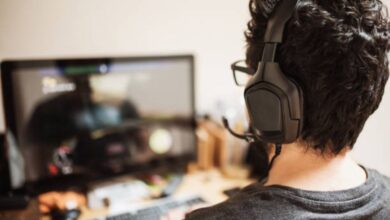2021 Polaris Glacier Plow Angle Does Not Work – Troubleshooting & Fixes

A snowplow is a crucial tool for clearing snow efficiently, and the 2021 Polaris Glacier Plow is a popular choice among ATV and UTV owners. However, users sometimes encounter an issue where the 2021 Polaris Glacier Plow angle does not work properly. If you’re struggling with this problem, it’s essential to diagnose the issue correctly and apply the right fixes.
In this comprehensive guide, we’ll go over the potential reasons behind the 2021 Polaris Glacier Plow angle does not work, step-by-step troubleshooting, and effective fixes to restore full functionality.
Common Reasons Why the 2021 Polaris Glacier Plow Angle Does Not Work
Several factors can cause the 2021 Polaris Glacier Plow angle does not work. Here are some of the most common reasons:
1. Hydraulic System Failure (If Equipped)
If your 2021 Polaris Glacier Plow has a hydraulic system, an issue with the hydraulics can prevent the plow from angling properly. Possible causes include:
- Low or contaminated hydraulic fluid
- Leaking hydraulic lines or fittings
- Air bubbles in the hydraulic system
- Faulty hydraulic pump or solenoid
2. Electric Actuator Malfunction (If Equipped)
Some models of the 2021 Polaris Glacier Plow use an electric actuator for angle adjustments. If the actuator fails, you may experience issues such as:
- No movement when engaging the angle switch
- Clicking sounds but no response
- Corroded or disconnected wiring
- Faulty control switch
3. Manual Angle Lever Issues
For manually adjustable 2021 Polaris Glacier Plow, problems often stem from:
- Jammed or frozen pivot points
- Rust buildup preventing smooth movement
- Improper engagement of the locking mechanism
4. Bent or Damaged Plow Components
Physical damage to the plow frame, angle arms, or mounting brackets can prevent the 2021 Polaris Glacier Plow angle does not work issue. This can be caused by:
- Hitting obstacles while plowing
- Excessive force applied to the plow
- Worn-out pivot points
5. Electrical or Fuse Issues
If your 2021 Polaris Glacier Plow angle does not work and it’s electrically controlled, check for:
- Blown fuses in the plow system
- Loose or corroded connections
- Battery issues affecting power delivery
How to Fix the 2021 Polaris Glacier Plow Angle Does Not Work Issue
Now that we’ve identified the possible causes, let’s go through a step-by-step troubleshooting process to get your plow functioning properly again.
Step 1: Check Hydraulic Fluid Levels and Condition
- Locate the hydraulic fluid reservoir.
- Ensure the fluid level is within the recommended range.
- If the fluid is dirty or has moisture contamination, replace it.
- Bleed the hydraulic system to remove any trapped air.
Step 2: Inspect Hydraulic Hoses and Pump
- Check for visible leaks in the hydraulic lines.
- Tighten loose fittings or replace damaged hoses.
- Test the hydraulic pump—if it fails to engage, consider replacing the solenoid or pump.
Step 3: Test the Electric Actuator
- Disconnect the actuator and apply direct power to it.
- If it doesn’t move, it may need replacement.
- Check the wiring harness and switch for corrosion or disconnections.
Step 4: Lubricate and Free Up the Manual Angle Lock
- Apply lubricant to the pivot points and locking mechanism.
- Manually move the 2021 Polaris Glacier Plow back and forth to ensure smooth operation.
- If rust buildup is severe, clean the affected areas with a wire brush and apply anti-rust spray.
Step 5: Inspect the Physical Components of the 2021 Polaris Glacier Plow
- Examine the frame, angle arms, and brackets for bends or cracks.
- If a part is bent, try straightening it or replace it if necessary.
Step 6: Check Electrical Connections and Fuses
- Locate the fuse box and replace any blown fuses.
- Inspect all wiring connections and clean any corroded terminals.
- Test the battery to ensure it’s providing enough voltage.
Preventative Maintenance for the 2021 Polaris Glacier Plow Angle Does Not Work Issue
To avoid future issues with the 2021 Polaris Glacier Plow angle does not work, follow these maintenance tips:
- Regularly check and top off hydraulic fluid levels
- Inspect and clean electrical connections to prevent corrosion
- Lubricate moving parts before the winter season
- Store the plow in a dry area to minimize rust formation
- Perform a full system check before heavy snowfall periods
Final Thoughts
A malfunctioning 2021 Polaris Glacier Plow angle does not work issue can be frustrating, but with proper troubleshooting and maintenance, you can get it working again efficiently. Whether it’s a hydraulic failure, an electrical issue, or a mechanical blockage, following the steps outlined in this guide should help you restore full functionality.
For more in-depth guides on maintenance, troubleshooting, and repairs, check out Mating Press, where we cover a range of technical solutions and practical tips.


